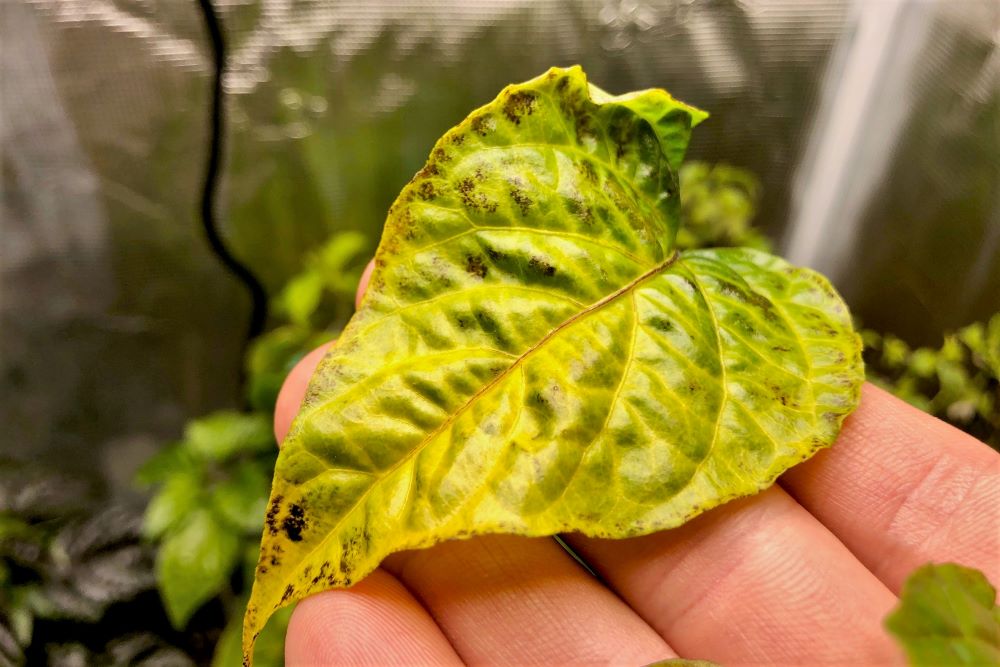Organic Vs. Synthetic Fertilizers: Which Is Best for Supporting Healthy And Balanced Pepper Plants?
In the world of supporting healthy pepper plants, the option between synthetic and natural plant foods stands as an essential choice with significant ramifications. While both alternatives goal to give crucial nutrients to sustain plant development, the subtleties of their effect on the soil, plant health and wellness, and the environment trigger a debate that mirrors throughout the horticulture area. Recognizing the distinctive benefits and potential pitfalls of each fertilizer kind is critical for pepper growers looking for to enhance their yields while preserving a sustainable and eco-conscious technique.
Benefits of Organic Fertilizers
Organic plant foods use a sustainable and environmentally-friendly approach to beneficial pepper plants, supplying important nutrients without using synthetic chemicals. These natural plant foods are originated from organic resources such as garden compost, manure, bone meal, and seaweed, advertising soil health and biodiversity. Unlike artificial plant foods, organic alternatives release nutrients gradually, guaranteeing a balanced and constant supply for pepper plants to flourish.
One significant advantage of organic plant foods is their capability to boost soil framework and water retention. By improving dirt health, natural plant foods promote helpful microbial activity, which helps in nutrient uptake by pepper plants. In addition, organic plant foods reduce the danger of chemical run-off, protecting water resources from pollution and protecting the setting.
Furthermore, organic plant foods add to long-term soil fertility by advertising the development of useful soil microorganisms. These microorganisms aid break down raw material, releasing nutrients in a type that is conveniently accessible to pepper plants. best fertilizers for peppers. By fostering a healthy soil environment, natural plant foods sustain lasting pepper farming practices that benefit both plants and the environment
Drawbacks of Synthetic Fertilizers
Synthetic plant foods, in comparison to their organic counterparts, pose numerous negative aspects when made use of to nourish pepper plants, impacting both plant health and ecological sustainability. One significant disadvantage of synthetic plant foods is their propensity to seep nutrients from the dirt rapidly.
Furthermore, the overuse of synthetic fertilizers can add to water pollution. Excess fertilizers not taken in by plants can wash away right into water bodies, causing eutrophication, where algae blooms diminish oxygen degrees in the water, damaging water life. Synthetic plant foods are generally acquired from non-renewable sources, such as fossil fuels, adding to carbon discharges and ecological deterioration during their manufacturing.
Nutrient Absorption Comparison
Reliable nutrient absorption plays an important role in the total health and wellness and growth of pepper plants. When contrasting organic and artificial plant foods in terms of nutrient absorption, natural plant foods have the advantage of providing a more balanced and slow-release resource of nutrients (best fertilizers for peppers). Organic fertilizers contain a selection investigate this site of macro and micronutrients that are not just helpful for the plants but likewise advertise healthy and balanced soil microbial task, which aids in nutrient uptake. On the other hand, artificial fertilizers typically offer a fast release of nutrients, which can bring about leaching and overflow, causing reduced nutrient absorption rates by the plants.
In addition, natural plant foods boost soil structure and water retention capacity, allowing pepper plants to access nutrients much more effectively. This enhanced dirt high quality promotes origin growth, enabling better nutrient absorption. Synthetic fertilizers, although initially increasing plant growth because of their high nutrient focus, might impede long-lasting nutrient absorption by degrading soil health in time.
Ecological Effect Considerations

On the various other hand, artificial fertilizers, although frequently more quickly readily available and concentrated to plants, can have harmful effects on the setting if not applied effectively (best fertilizers for peppers). Their manufacturing needs high energy inputs, bring about greenhouse gas discharges and contributing to environment modification. Furthermore, the drainage i thought about this of excess synthetic fertilizers can pollute water sources, leading to eutrophication and harming marine environments.
Ideal Fertilizer Practices for Peppers
To accomplish this, it is necessary to adhere to ideal plant food methods customized to the certain demands of pepper plants. One critical technique is to execute a dirt examination prior to using any kind of plant foods.
An additional vital technique is to feed pepper plants at the ideal time. Commonly, peppers gain from getting fertilizer at planting and then again when they start to blossom. Over-fertilizing can bring about vitamins and mineral discrepancies and hurt the plants, so it is important to follow suggested application rates.
Additionally, choosing a well balanced fertilizer with an NPK proportion that suits pepper plants' needs is basic. Organic fertilizers, such as compost or manure, can be superb options as they release nutrients gradually and enhance soil framework gradually. Nevertheless, synthetic plant foods can offer a fast nutrient increase when needed. Ultimately, incorporating synthetic and natural plant foods judiciously can aid nurture healthy and balanced pepper plants while reducing ecological effect.
Final Thought

Organic fertilizers supply a sustainable and environmentally-friendly strategy to nourishing pepper plants, offering crucial nutrients without the usage of artificial chemicals. Unlike synthetic fertilizers, natural alternatives release nutrients weblink slowly, making sure a balanced and consistent supply for pepper plants to grow.
Synthetic fertilizers, in contrast to their natural equivalents, posture various drawbacks when utilized to nurture pepper plants, impacting both plant health and environmental sustainability. When contrasting natural and artificial plant foods in terms of nutrient absorption, organic fertilizers have the advantage of offering a much more well balanced and slow-release resource of nutrients.In addition, natural plant foods boost dirt framework and water retention ability, permitting pepper plants to accessibility nutrients more efficiently.